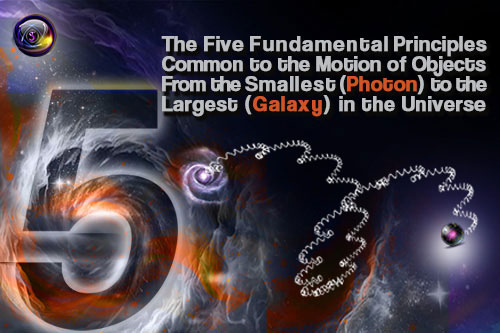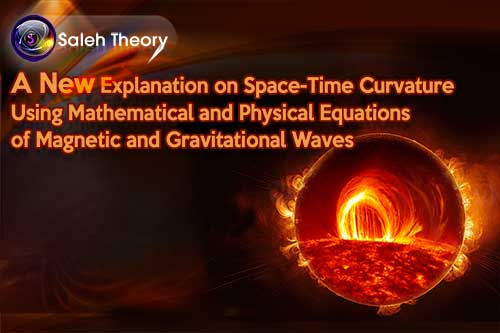
A New Explanation on Space-Time Curvature Using Mathematical and Physical Equations of Magnetic and Gravitational Waves
Consider a simple magnetic bar. When iron filings are sprinkled on it, the structural model pattern of the magnet is clearly manifested by the iron filings. This indicates that the iron filings represent the structure and spatial model of the magnetic fluxes surrounding a magnet.

Now consider the periodic table of elements, in which all elements have a similar structure, consisting of nuclei and electrons orbiting the nuclei. The differences between the elements lie in their properties, which are determined by the number of electrons, protons, and neutrons they possess, rather than in their structures. Indeed, the structure and constituent particles of all elements in the periodic table are uniform. Similar conditions prevail in the electromagnetic spectrum diagram. Just as humans can easily distinguish seven colors in the visible region, it's important to note that the edges of the visible light spectrum (infrared and ultraviolet) have no structural or consistency differences with visible light. However, they are imperceptible to the human eye due to their frequencies being outside the range of human vision. However, some animals, such as snakes, or creatures with specialized eyes, can perceive infrared and ultraviolet ranges.
Now, we delve into the study of the frequency of Magnetism, X-rays, and Gravity, and compare their characteristics and structures:
1. Magnetism
In the previous articles, we obtained the frequency of magnetic waves in ordinary magnets by experiment, and now we proceed to present the calculation process and the resulting outcomes.

By using two completely similar magnets and equating the gravitational potential energy to the energy derived from Planck's energy formula (where the coefficient 'n' represents the number of fluxes passing through each magnet), we have calculated the frequency of magnetic waves. We have found that the frequency range of these waves is between 1015 Hz to 1016 Hz [1].
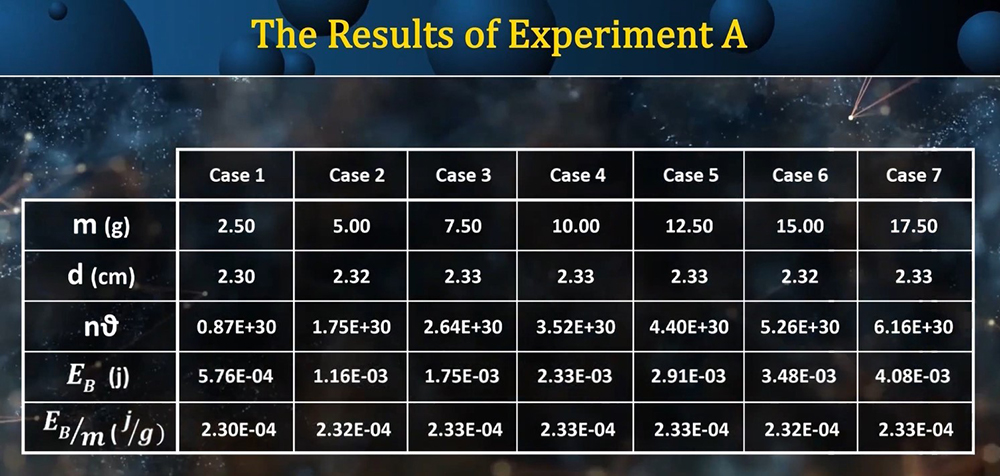
2. X-rays
X-rays are adjacent to magnetic waves in the electromagnetic spectrum diagram, with frequencies ranging between 1016 Hz to 1017 Hz.
3. Gravity
In previous articles, we have calculated the frequency of gravitational waves within the Solar System. By the equation of the kinetic energy of the planets with the energy derived from Mr. Planck's energy formula (with the coefficient 'n' representing the number of fluxes passing through each object), we have calculated the gravitational frequency between the Sun and the planets of the Solar System and then between the natural satellites and the planets. We have found that the range of the frequency of gravitational waves is between 1017 Hz to 1021 Hz [2].
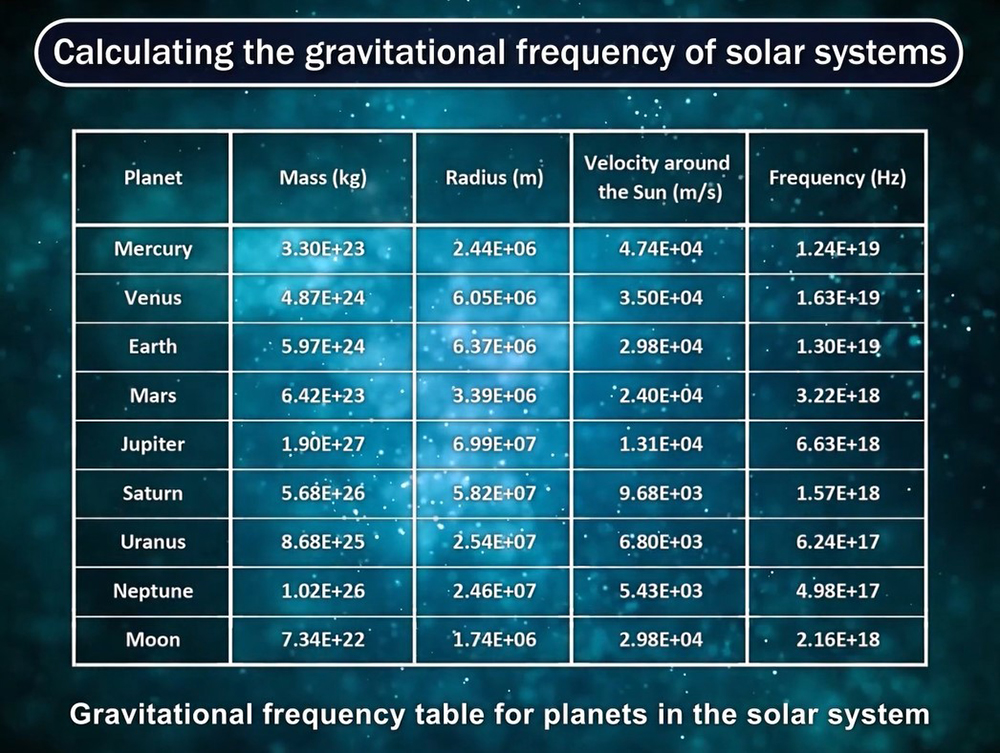
If we have a look at the electromagnetic spectrums diagram, Magnetism, X-rays, and Gravity, these three ranges are adjacent to each other and have similar structures but differ in frequency. In essence, gravitational waves are the elder siblings of magnetic waves. In other words, while magnetic waves affect some elements, gravitational waves affect all elements.

It can be said that just as magnetic fields have magnetic fluxes, gravitational fields or gravitational sources also have gravitational fluxes. Whenever particles, such as photons or even celestial objects at the size of galaxies, are caught in gravitational fluxes, these fluxes influence and cause them to deviate. However, the model of gravitational fluxes dictates that they emit from a source and then return in a closed curved path (like a Magnetic wave).
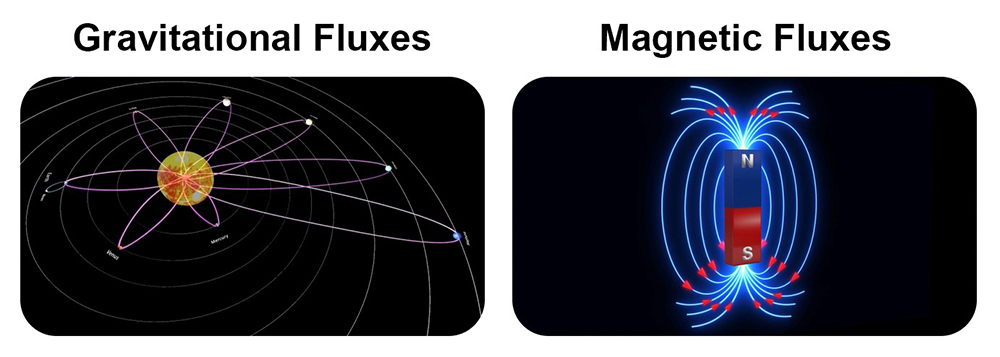
Therefore, when an object, regardless of its size, is subjected to gravitational fluxes, these fluxes act like hooks, pulling it and shaping its path similar to its own curvature. Essentially, gravitational fluxes cause the deviation of the targeted mass, deviating and redirecting its trajectory towards the centre of gravitational attraction. The deviation of celestial objects by gravitational waves and their alignment in the path of gravitational fluxes can be referred to as space-time curvature or space-time bending. In other words, the physical phenomenon of changing the trajectory of objects and their alignment in the curved path of gravitational fluxes can be defined as the curvature of space-time in the universe.
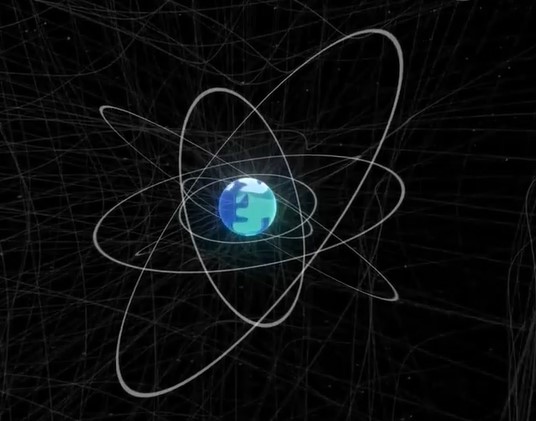
Notice:
1. Space
If we were to define 'space' accurately and realistically, we would say that it is a completely empty vacuum. In essence, emptiness is similar to the number zero, which, when multiplied by any other number, equals zero. As a result, nothing could affect space.
2. Time
The time parameter depends on the existence of mass and the changes in its position or quantity. If mass exists and undergoes a change in position or quantity, we can say that we have a change in time. To better understand, consider an example: if we freeze the Solar System, it is obvious that there are no more days and nights, and in an area of the Earth, there is always daylight (or night). In this case, variable time no longer exists. In essence, it can be said that changes in mass create time, but changes in time do not necessarily create changes in mass.




